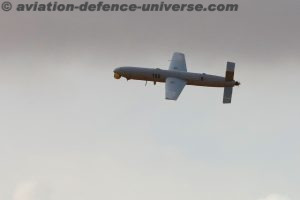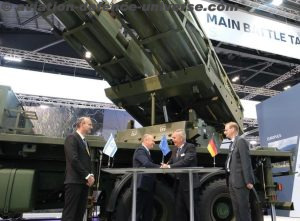London. 13 September 2023. In the latest milestone on the Franco-British Maritime Mine Counter Measures (MMCM) programme, Thales has successfully completed an at-sea demonstration of the ability of the world’s first fully integrated drone-based mine countermeasures system to locate, identify and neutralise sea mines.
This system of systems uses the fully proven M-Cube mission management system (MMS) to integrate and control multiple uncrewed surface and underwater vehicles equipped with high-performance sonars and other systems, and will provide the UK Royal Navy and the French Navy with the world’s first complete drone-based mine countermeasures capability.
Thales is a world leader in uncrewed mine countermeasures. The latest demonstration confirms the company’s role as a reliable innovation partner empowering naval forces to develop their strategic capabilities today and into the future.
 During sea trials conducted remotely from the command centre in Brest, France, Thales has successfully demonstrated the performance of the final component of its innovative mine countermeasures system – the remotely operated underwater vehicle – and its ability to neutralise sea mines. The MMCM programme relies on the very latest developments in autonomous technologies, artificial intelligence, cybersecurity and uncrewed systems to handle challenging operational scenarios as defined by the French Navy and the Royal Navy. The first two prototype MMCM systems were delivered incrementally following at-sea qualification in conditions up to and including sea state 41. Since the end of 2021, the Navies have been conducting operational evaluations, and will take delivery of the six series-produced systems in 2024 and 2025.
During sea trials conducted remotely from the command centre in Brest, France, Thales has successfully demonstrated the performance of the final component of its innovative mine countermeasures system – the remotely operated underwater vehicle – and its ability to neutralise sea mines. The MMCM programme relies on the very latest developments in autonomous technologies, artificial intelligence, cybersecurity and uncrewed systems to handle challenging operational scenarios as defined by the French Navy and the Royal Navy. The first two prototype MMCM systems were delivered incrementally following at-sea qualification in conditions up to and including sea state 41. Since the end of 2021, the Navies have been conducting operational evaluations, and will take delivery of the six series-produced systems in 2024 and 2025.
As prime contractor and lead systems integrator on the MMCM programme, and working with an extensive network of partners, Thales has further consolidated its global leadership in drone-based mine countermeasures.
The successful trials represent the latest milestone on the programme. Conducted with representatives of the French Navy, the French defence procurement agency, the Royal Navy, the UK Ministry of Defence and OCCAr, the sea trials demonstrated the system’s ability to relocate and identify sea mines, and the remotely operated underwater vehicle successfully installed exercise charges on a bottom mine and a moored mine2 so that the neutralization cycle could be completed. The demonstrations were conducted in realistic conditions at sea, with the Thales operations centre in Brest controlling the systems remotely and performing the functions of the Portable Operation Centre (POC) with the support of personnel from the Marine nationale.
This latest technological achievement is a further endorsement of Thales’s expertise in naval systems engineering, high-performance sonars, artificial intelligence, cybersecurity and autonomous technologies, and demonstrates the ability of its M-Cube mission management system to integrate a range of different types of sub-systems. It promises to redefine the mine countermeasures concept of operations by ensuring that naval personnel remain outside the mine danger area. Human operators rely on advanced systems to detect, classify, locate, identify and neutralise even the most sophisticated and best concealed mine threats with a high level of precision and reliability. A latest-generation processing and visualisation system powered by artificial intelligence algorithms performs real-time (in-stride) and/or post-mission analysis of the sonar data.
Integration of the first series-produced subsystems within the overall system of systems has begun at the Brest site, with delivery to the Navies scheduled for early 2024. These subsystems include uncrewed surface vehicles deploying either the TSAM towed array sonar or the remotely operated underwater vehicle (ROV) for mine identification and neutralisation. Mission preparation, monitoring, control and evaluation are conducted by operators in the Portable Operation Centre (POC) or the Shore Operation Centre (SOC).

































































































































